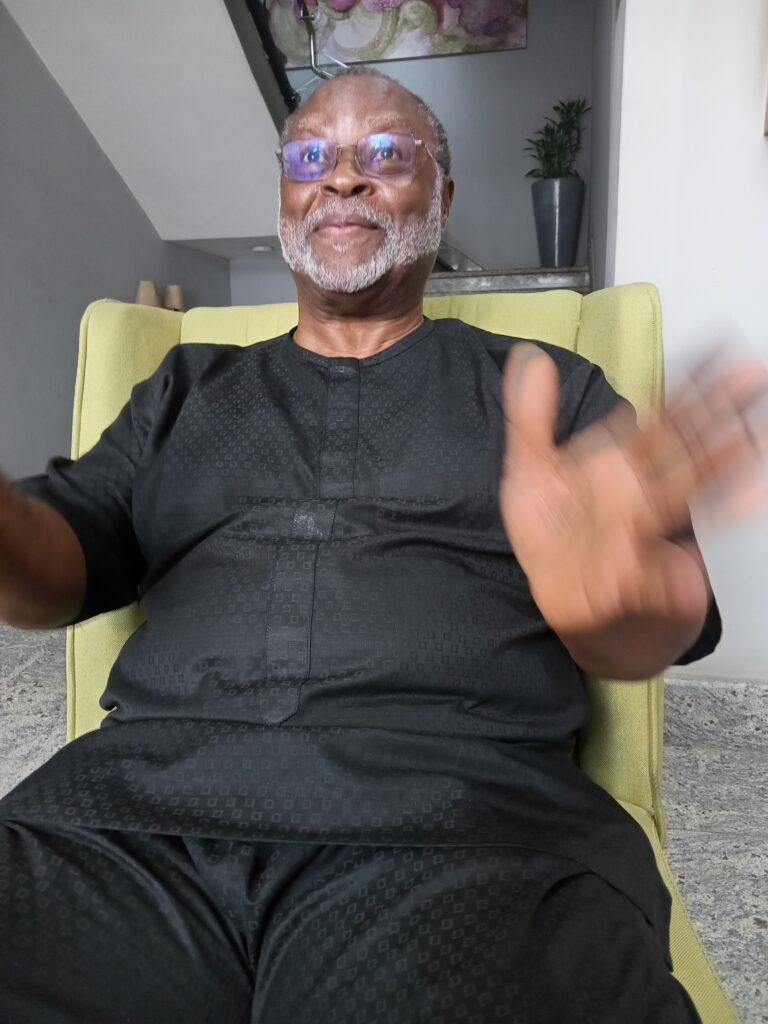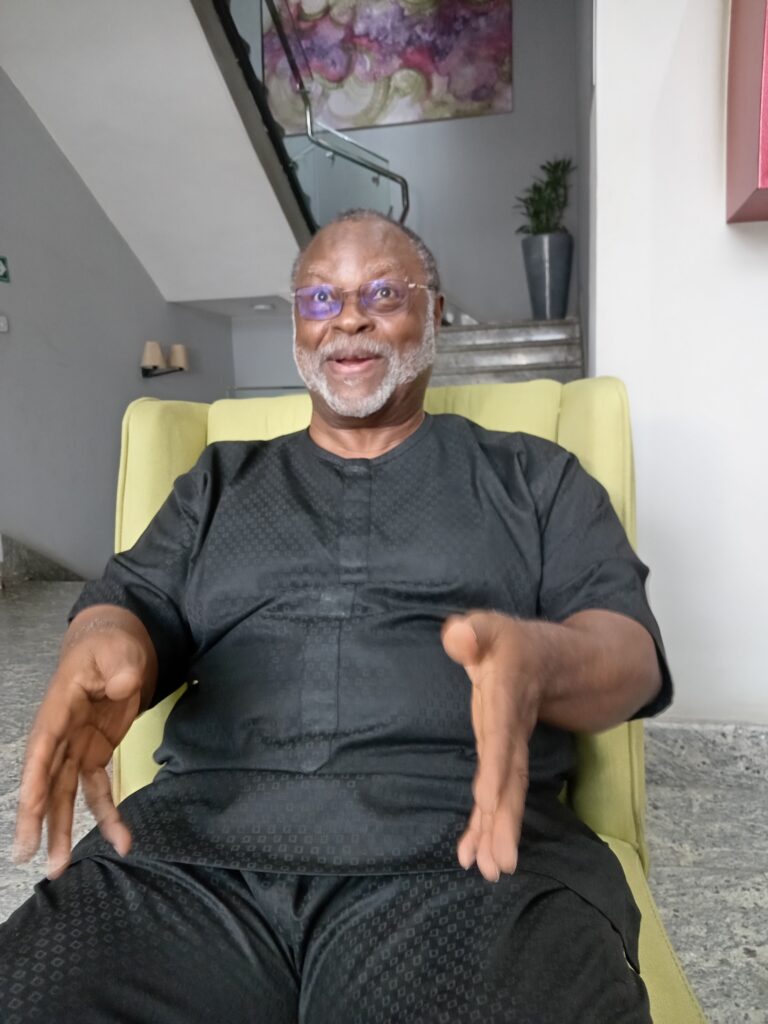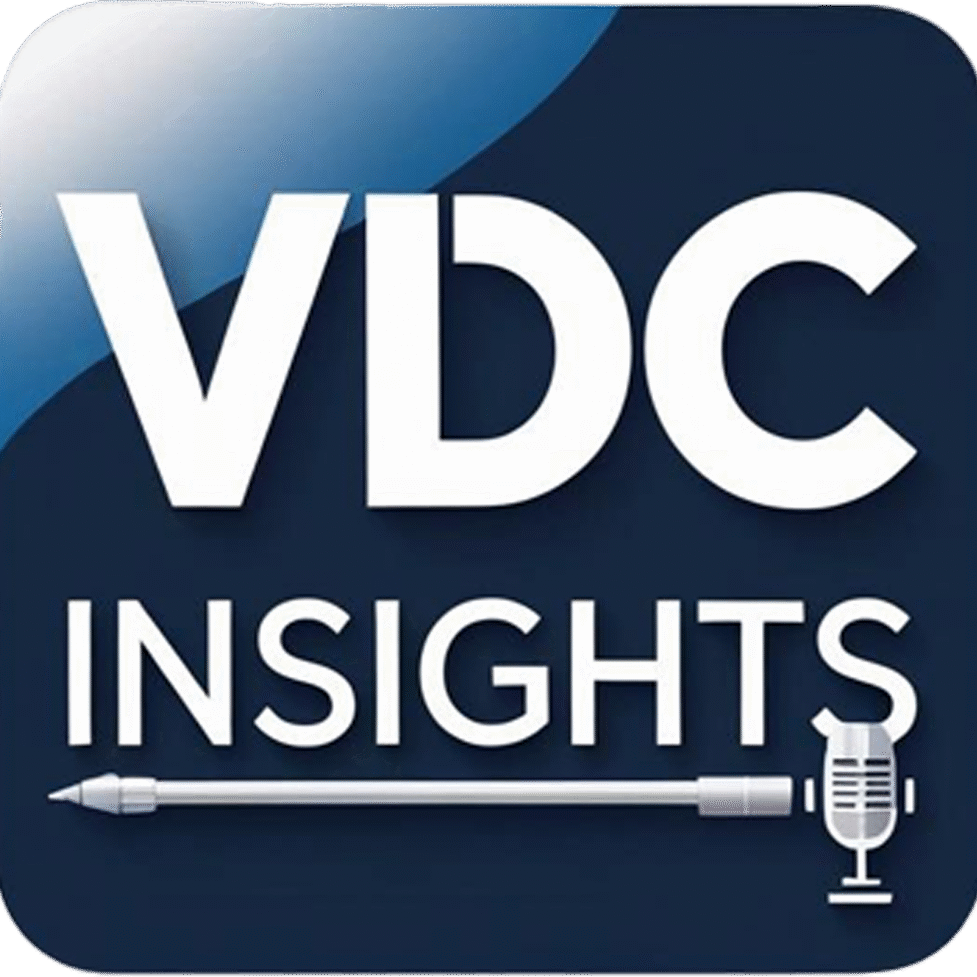The Pioneer Secretary of National Democratic Coalition, NADECO, Prof Udenta Udenta says the country urgently needs a “reset” to return to the spirit inclusive governance, democratic balance, and servant leadership that prioritizes all Nigerians, not a narrow elite.
Prof Udenta said what we see now is almost an authoritarian regime, not clear whether it is truly civil government or creeping dictatorship, pointing out that Liberal democracy in Nigeria had always had its flaws, but since 2015, the decay has accelerated, and after 2023 it has reached an acute level.
While tracing Nigeria’s political and economic journey from 1999 to the present, he noted that former President Olusegun Obasanjo laid early foundations of reform, inclusion, and servant leadership through anti-corruption measures, telecom expansion, and national unity efforts.
He pointed out ‘Yar’Adua is remembered as slow but inclusive, while Jonathan is later appreciated for tolerating dissent and conceding power in 2015.’
Prof Udenta, who is the Director General of African Writers Institute Abuja describe the Buhari regime as terrible and responsible for dismantling every foundational effort made in our democratic journey before he came on board.
‘The real rupture came with Buhari (2015–2023), whose government dismantled reforms, allowed insecurity to spread, and left Nigeria the “poverty capital of the world.”
He noted ‘ Buhari’s presidency was a calamity in many ways almost as if the country drifted for eight years. And now, under the current administration, what we see is a presidency that is parochial, sectional, and insufferably exclusive.’
‘Look at the appointments security chiefs, ministers, key economic positions they are concentrated in a narrow circle. It is not a government for everybody. It is sectional hegemony disguised as national governance,’he posited.
The renowned author and communicator noted that ‘under the current administration, subsidy removal and currency float have deepened poverty and inflation without safety nets.’
He added’ Citizens face rising costs, hunger, and unemployment, while civil liberties are suppressed, protests crushed, media harassed, and appointments skewed to one section of the country.
Prof Udenta said he was not surprised with the rot since President Bola Tinubu promised to continue with the policies of Buhari, stressing that ‘The result is incremental state decay, democratic backsliding, and loss of national solidarity.
He further noted ‘There is an extraordinarily haunting sense of deprivation, a deluded level of existence hanging over virtually every segment of society. Only a tiny segment of the population seems to have everything working for them before our very eyes.’
The former academic pointed out that there are two realities in Nigeria today, ‘One Nigeria is for the very few dominant, rich, rapacious in their battle for resources, and hegemonic in their accumulation and abuse of power. The other Nigeria is for the millions in urban cities who are battered by intense economic, financial, and societal shocks.
How Did We Get Here?
How we got here is a combination of many factors. In the early days of Obasanjo’s presidency, from 1999 to around 2002, he tried to lay a foundation for national recovery. He also worked to reintegrate Nigeria into the international environment. At home, he pushed reforms, especially in the telecom sector, and created anti-corruption agencies like the EFCC and ICPC. There was an attempt to bring radical reforms, to balance governance, and to accommodate everybody.
He introduced a kind of government of national unity. When PDP won in 1999, he even incorporated elements of the opposition. He created the office of inter-party relations. His vision was one of inclusion, of simplicity, of servant leadership. He had to end crises like the low-level insurgencies that were bleeding the country dry. He stabilized them, launched the “Boost and Blessing” program, and strengthened the framework for multiparty democracy. Importantly, he made sure that those who won elections were allowed to take their mandates.
The president who succeeded him, first as vice president, then acting president, and finally president, tried to sustain that table of transformation. By the time he left office, Boko Haram had been beaten down substantially. There was also the Growth Agenda and committee processes. The PDP’s 16-year rule, at its best moments, gave Nigerians a sense of sovereignty and even glimpses of happiness.
But there were signs of disconnection too, especially from the global system NDGs, SDGs, continental models like NEPAD, the NEEDS document, and the Seven-Point Agenda. Unfortunately, we reached what I would call an epistemic break — a rupture in the knowledge of how to deepen Nigerian democracy.
When Buhari came into office in 2015, his eight years in power dismantled much of the earlier reform programs. Government performance weakened across the board. The so-called war against terror slackened, spreading violence from the Northeast into the Northwest, and then into the North-Central. Bandits ravaged communities. The entire northern region was almost engulfed. In the Southeast, IPOB and secessionist agitations persisted. In the Southwest, the Yoruba nation movement grew. By the time Buhari left office, Nigeria had become the “poverty capital of the world.” Multidimensional poverty defined existence. Recovery seemed almost impossible.
When the current president came in, he promised to sustain and further expand governance. Instead, he removed fuel subsidy on day one without any plan for the aftermath. He floated the naira without proper safeguards. Those two radical measures have worsened poverty, hunger, and inflation. Salaries were raised to ₦70,000, but for many Nigerians it is meaningless. For example, someone living on the outskirts of Abuja could spend nearly ₦100,000 a month on transport alone, because we have no public transport system.
Prices of food and drugs have skyrocketed. The economy is bleeding. Government spends recklessly without improving lives. Inflation keeps rising, worsening comorbidities for ordinary people. I can tell you from experience drugs that used to cost ₦14,000 now go for ₦35,000. Across every sector, Nigerians face collapse not total collapse, but incremental decay of the state.
Even civil society has been repressed. Under Obasanjo or Jonathan, people could protest whether it was fuel subsidy protests or the “Occupy Nigeria” movement. Today, protests are shut down. Young people are arrested and detained for weeks. The media is harassed — owners are forced to submit bank statements, laws are misapplied to muzzle the press. Political parties are weakened.


